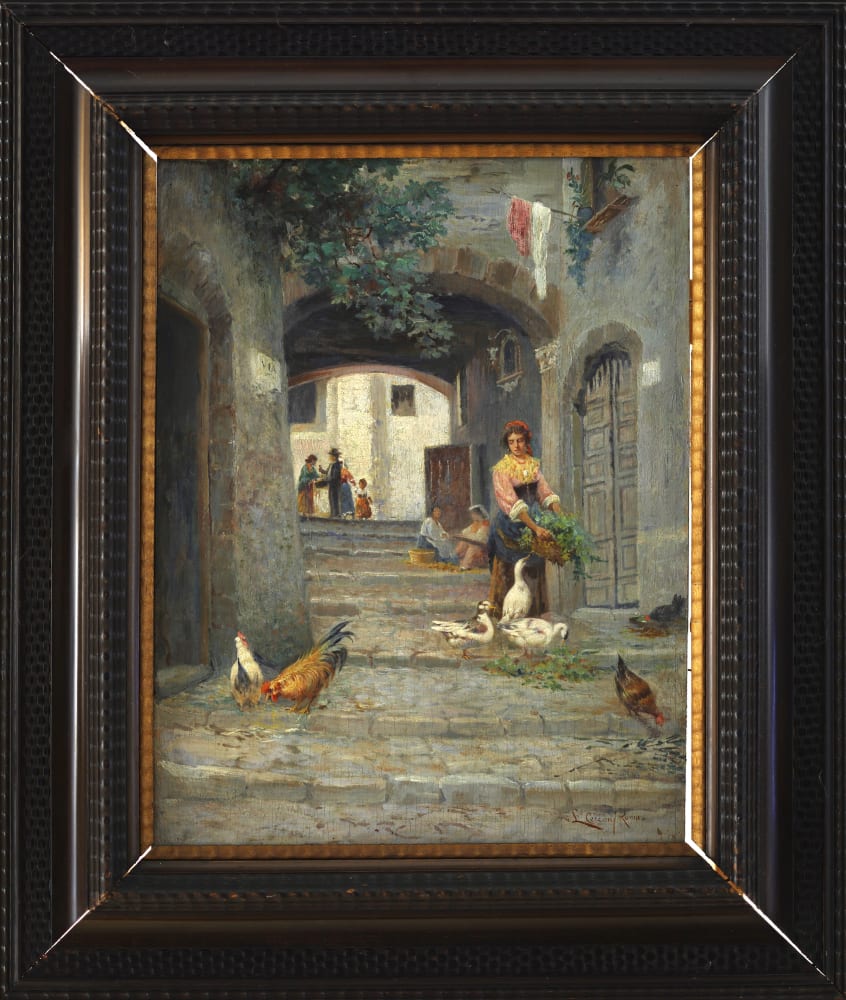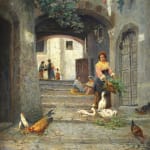Lorenzo Cecconi Italian, 1863-1947
Further images
Feeding the Flock is a quintessential example of early 20th-century Italian art, showcasing Lorenzo Cecconi’s profound ability to depict the quiet beauty of Italian pastoral painting and the rhythms of countryside life in Italian art. This evocative rural genre scene captures a lady engaged in the timeless ritual of feeding chickens and birds, set against a backdrop of rustic architecture and worn stone surfaces rendered in Cecconi’s signature muted color palette.
Cecconi, a master of Italian tonalism, trained at the renowned Accademia di San Luca in Rome under the guidance of Aurelio Tiratelli, an influential figure in traditional Italian art. His work bridges academic traditions with a more intimate, atmospheric style that emphasizes light, shadow, and subtle tonal variations. Feeding the Flock reflects this heritage, combining sensitive figurative painting with the serene, contemplative mood characteristic of Mediterranean art scenes.
In addition to his celebrated painting career, Cecconi was a respected Italian art restorer, which further enhanced his deep understanding of classical techniques and historical materials. This expertise is evident in the technical precision and layered textures of Feeding the Flock, where every brushstroke conveys both craftsmanship and emotional resonance.
The painting invites viewers into the daily life of rural Italy during the early 1900s, offering a window into the pastoral traditions and simple pleasures of farm life in Italian painting. Its focus on humble, everyday activities situates it firmly within the genre of historical Italian figure painting and rustic Italian scenes, themes that continue to captivate collectors and enthusiasts of classical European art.
Feeding the Flock is a testament to Lorenzo Cecconi’s talent for merging technical skill with storytelling, making it a valuable addition to collections emphasizing Italian tonalism, countryside genre scenes, and early 20th-century Italian painters who celebrated the harmonious relationship between people, animals, and their environment.
This piece measures 20 x 14.25 inches and is signed on the bottom right.Provenance
- Flavio Giosi, Rome- 1 Monstra Internazionale D'Arte, Roma
- private collection, Lewiston, NY






